Chickens are a great addition to any small farm or homestead. They are fun, easy to manage, and make enjoyable companions, all while producing eggs for you to eat or sell. While chickens are generally easy to keep, they do require some regular care to keep them healthy. One of the things chickens need is regular deworming.
When to Deworm Chickens
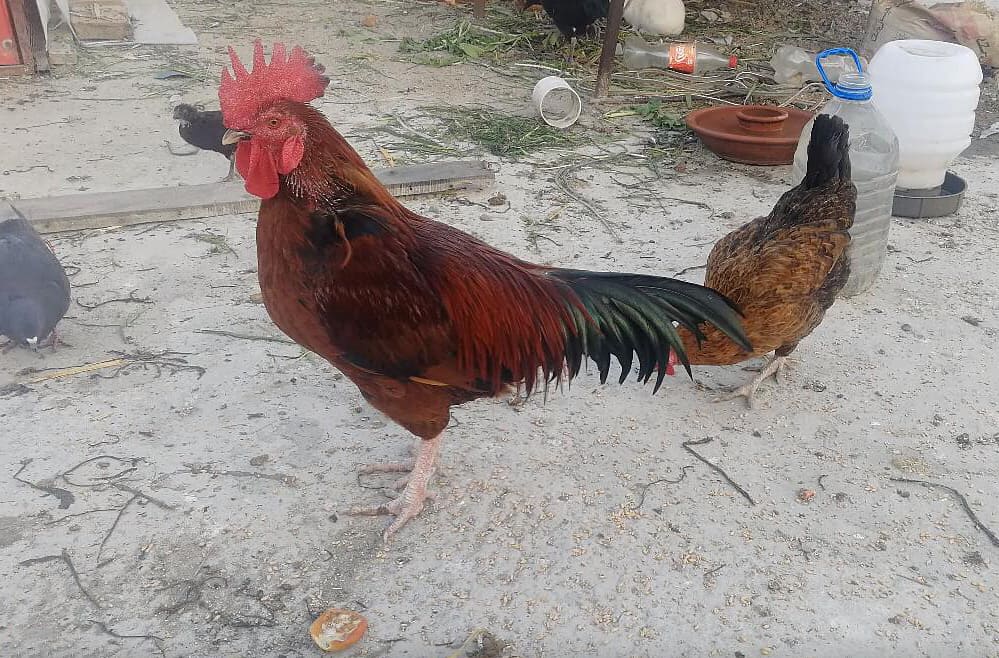
It can be hard to know when you should deworm your chickens, as they may not show any signs of having worms. It is essential to watch for symptoms of worms in your chickens. This way, you can make sure that you treat them with chicken dewormer before the worms harm them. Some common signs of worms in chickens are:
- Diarrhea: Droppings will be loose and watery. Chickens may have droppings stuck to the feathers under their tails.
- A decrease in the number of eggs: Your chickens will lay fewer eggs than usual. There may be a sudden drop in egg production or a slight decline.
- Loss of Weight: Chickens may carry less weight than before. They may look or feel bony, even though plenty of food is available.
- Pale egg yolks: The egg yolks may look pale yellow instead of the deep, rich yellow or orange seen with healthy chickens.
- Shaking heads: Chickens with worms may shake their heads frequently. Usually, there is no sign of any other reason for the head shaking.
- Lethargic: Your birds may seem very lethargic, lacking energy or enthusiasm. They are likely uninterested in eating, scratching, or other usual activities.
- Coughing: Chickens with worms will often cough or have raspy breath sounds. Healthy chickens rarely cough or have breathing issues. This is a definite sign of a problem.
- Death: Worms that go undiagnosed can cause chickens to die for seemingly no reason. A dead chicken may be the result of a problem that is limited to that chicken alone. However, it often signals a problem that might be affecting the entire flock.
If your chickens have worms, you are unlikely to see them, though they may be visible in some cases. Most worms stay hidden inside their host’s body, and the only evidence is often the presence of worm eggs. Since the eggs passed are microscopic, you’d need help from your veterinarian to accurately diagnose them this way.
Kinds of Worms that Affect Chickens
Chickens get worms because they live outside and eat things that carry them, such as bugs and slugs. They can also be infected when they forage for food in an area where the feces of other animals have been contaminated.
Worms or eggs can survive outside a host for a year or more. It means they can lie there on the ground, just waiting to be picked up by your chickens. A good chicken dewormer will kill most kinds of worms your chickens will likely have.
Some of the more common worms that chickens get infected with include the following:
Hairworm or Capillaria
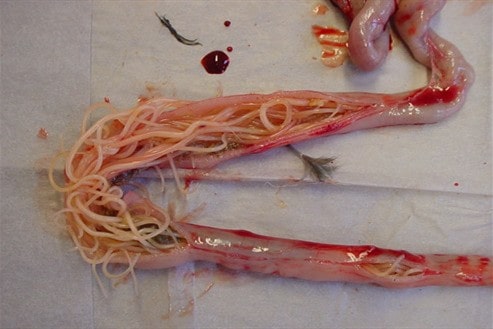
This worm can be found in several different places in a chicken. This includes the intestine, crop, esophagus, and proventriculus (stomach). The hairworm is very thin, which is where it gets its name. It is usually only bout 1 to 2 cm long.
Chickens can pick up this worm from all kinds of things they may eat, including earthworms. Hair worms will damage the internal organs of infected chickens and can ultimately kill them. A chicken dewormer that targets this parasite will get rid of hairworms.
Roundworm
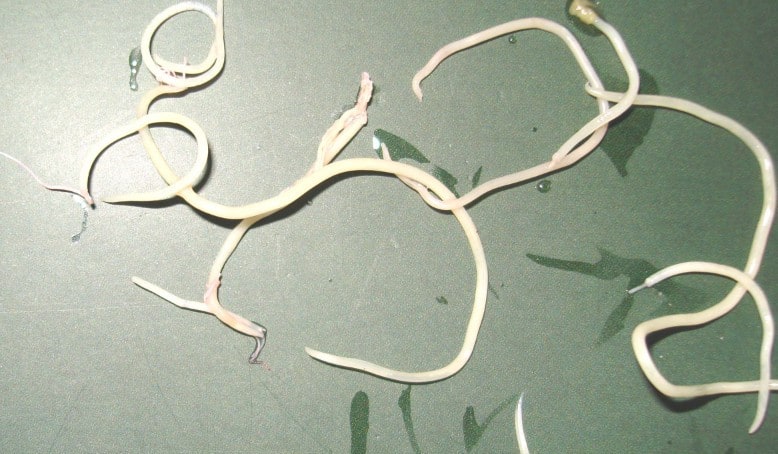
This common parasite gets into chickens through hosts such as earthworms and from the presence of wild birds. It commonly is passed through a flock via contamination of food and water with feces. It can result in the death of infected chickens by blocking their intestines or stealing nutrition when the chicken eats.
Tapeworm
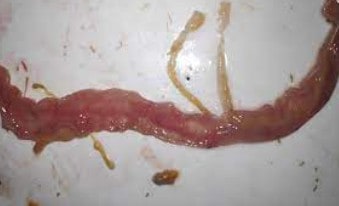
These are segmented worms that affect chickens around the world. Tapeworms rob chickens of the nutrients they need to live and produce eggs. Infected chickens may lose weight or fail to grow or thrive.
A tapeworm infestation may not kill chickens but can still impact their health. It leaves them open to contracting various illnesses that could kill them if the worms are not treated immediately.
Gapeworms
These worms take up residence in the chicken’s windpipe. Affected birds may be seen struggling to breathe, a condition known as the gapes. It’s particularly lethal for young birds and can kill them if a chicken dewormer isn’t used to protect them.
2 Types of Chicken Dewormers
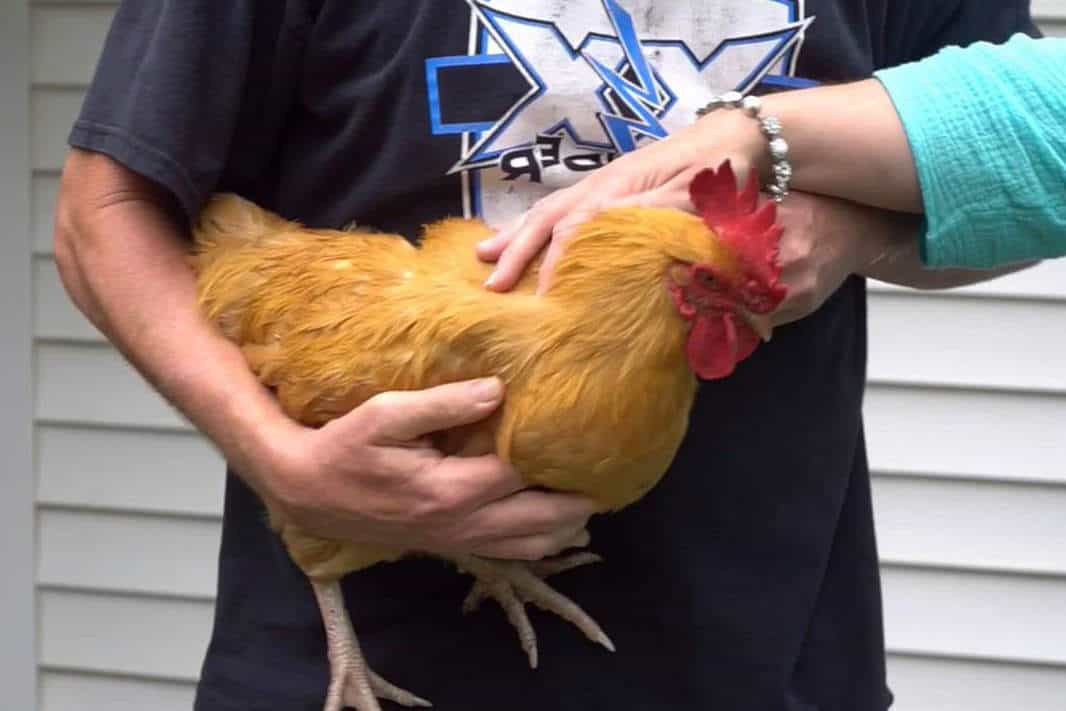
A variety of commercial chicken dewormers are available that can be used to kill worms in chickens. These will protect them and prevent them from falling victim to these pests.
If possible, it is ideal to know the type of worms you are targeting with your chicken dewormer. However, using an excellent all-purpose chicken dewormer will remove most worms. If you deworm your chickens and continue to have problems, consult a veterinarian for help.
When you decide to deworm your chickens, you can do it in response to symptoms or as a prophylactic measure. When deworming chickens show signs of infestation, you should deworm them as soon as you notice symptoms of worms.
When deworming chickens as a prophylactic measure, give them chicken dewormer on a schedule. It should be done whether they show signs of having worms or not.
Commercial Dewormer
Chicken dewormer is readily available from your veterinarian, farm and feeds supply stores, and many online sources. Most commercial chicken dewormers contain fenbendazole, ivermectin, albendazole, or levamisole. Some chicken dewormers can contain more than one of these medications.
Chicken dewormer containing piperazine is also commonly available. While this medication is safe, piperazine only kills roundworms. Fenbendazole and albendazole are also safe and will kill more than one type of worm.
Use caution when deworming your chickens. Chicken dewormer is unlikely to kill all the worms infecting your chickens, but it controls them. Deworming means that the parasitic worm population in your chickens is reduced. The number of parasites is so low that it won’t harm your birds.
Deworming them too frequently won’t get rid of all of the worms. What it will do is result in the remaining worms becoming resistant to the deworming medications. Many people choose to rotate the type of medicine used to deworm their chickens. It means the worms encounter a different medication every time, making them more likely to be affected.
Natural Chicken Dewormers
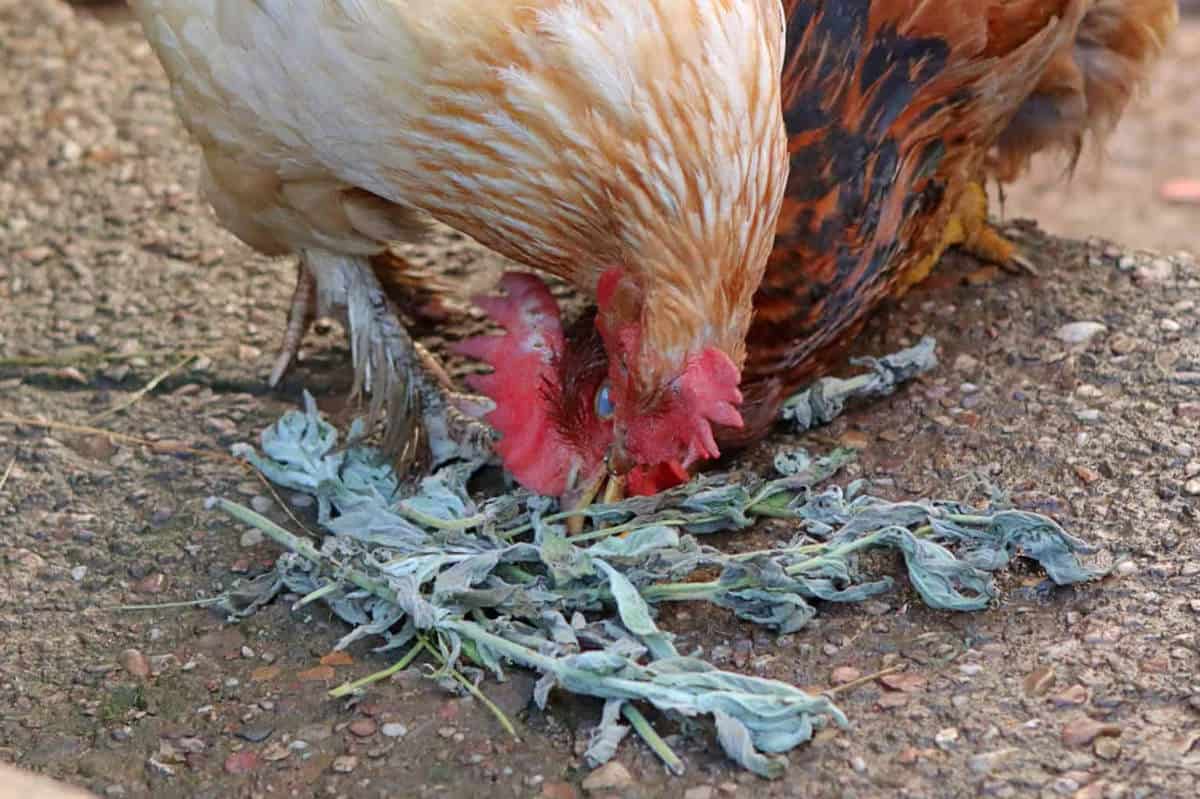
Some flock owners believe that commercially available chicken dewormers can be harmful to their flocks. They prefer to use more natural methods, such as herbs and diatomaceous earth. While such methods may have some benefits for chickens, the evidence is limited. No scientific proof shows that deworming chickens with such natural methods is effective.
Some people advocate the use of tobacco as a chicken dewormer. The evidence is against this, as it will kill worms but will also likely harm the chickens. Tobacco is far too harsh for chickens to consume safely.
How to Deworm Chicken
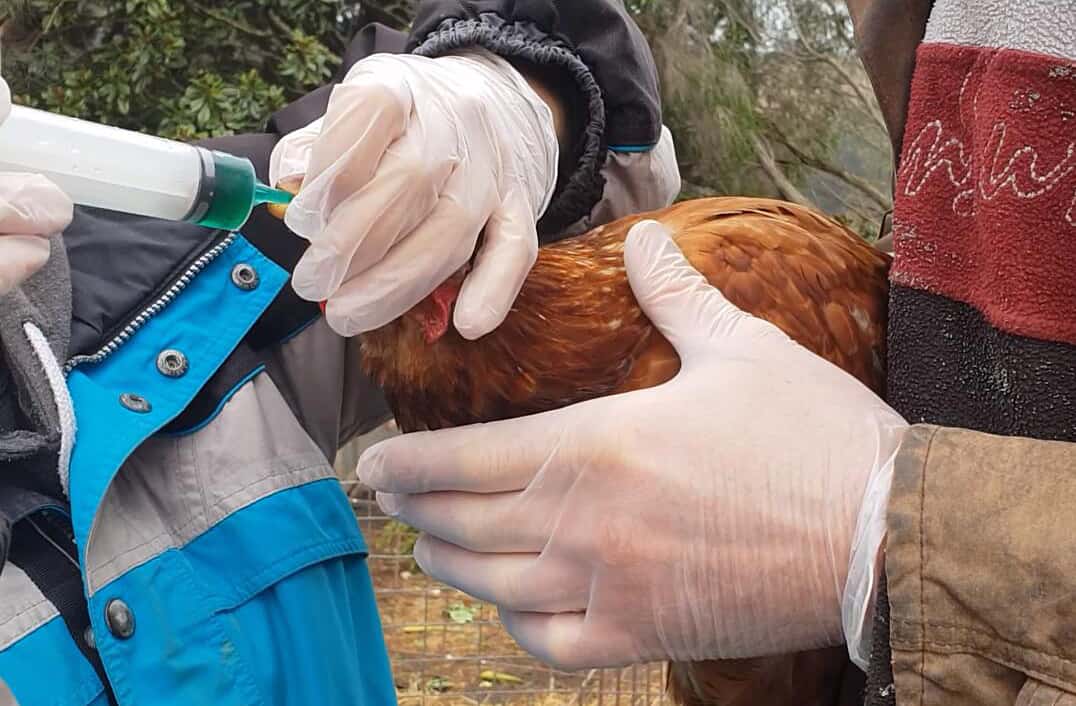
Chicken dewormer is given to chickens in their water or food. There are two parts to administering chicken dewormer. The first part is to get the dose right. It’s especially important in a chicken dewormer mixed with the chickens’ water.
Too strong of a mixture may harm your chickens. Too weak of a mix won’t be effective. It’s essential to follow the instructions on the chicken dewormer to ensure that it does the job in the safest way possible.
When administering medicated food containing chicken dewormer, removing all other food is crucial. If the chickens have a choice, they may refuse to eat the medicated feed.
It can result in them not being dewormed effectively, if at all. Small doses can also lead to resistant worms that will no longer be able to be killed by chicken dewormer.
The other part of administering a chicken dewormer to your flock is to ensure they have it available for long enough. Putting some chicken dewormer out for a day or two won’t be enough.
Most of the time, you must leave the medicated food or water out for as much as a week. This ensures that all the chickens have gotten enough medication and that the dose has been repeated several times.
3 Ways to Prevent Worms in Chickens
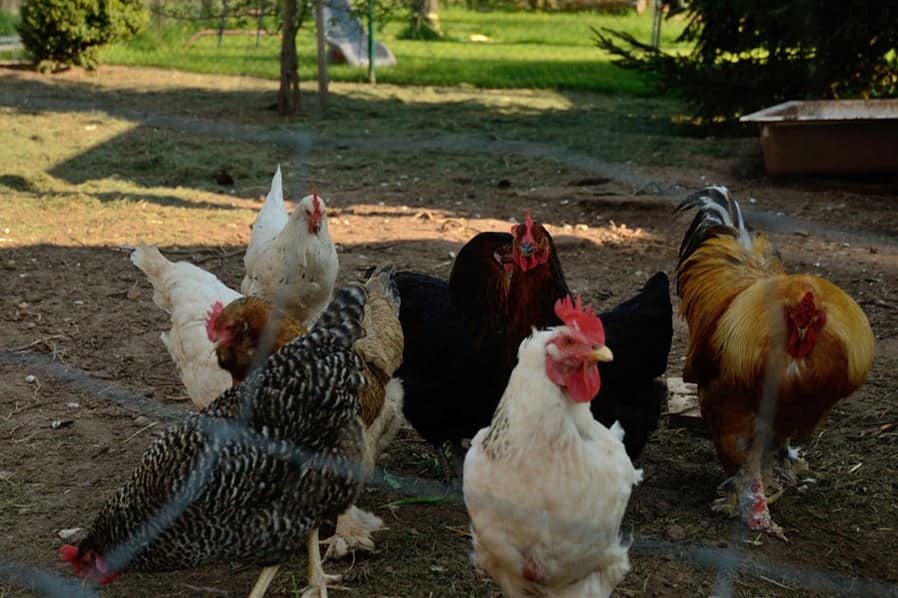
Clean Your Coop Regularly
A clean coop is essential for preventing worms in chickens because it reduces the risk of exposure to parasitic eggs or larvae. Parasites like roundworms and tapeworms can live in soil, manure, bedding material, and on surfaces within a chicken’s living environment. When chickens peck at contaminated materials, they can ingest these parasites, which then infect their digestive system, causing illness.
Regularly removing soiled bedding material from the coop floor helps decrease levels of parasite contamination, as does cleaning feeders and waterers regularly. Keeping coops well-ventilated with fresh air circulating through also makes conditions less hospitable to bacteria that attract flies carrying worm eggs into your flock’s home.
Deworm Regularly
Deworming chickens every 3-6 months is a common practice used by poultry farmers to control parasites and prevent infections in their flock.
The frequency of deworming depends on the size of your flock, its environment (i.e., free-range vs. confinement), age, and weather conditions. Usually, it’s recommended for backyard chicken owners with small flocks under thirty hens and inhabiting suburban locations to do it at least twice a year.
Always Provide Clean Water
A clean water source is important in preventing worms in chickens because it helps reduce the risk of disease transmission through contaminated drinking water. Parasite eggs and larvae can survive for extended periods within damp, humid environments- including inside chicken’s watering systems like nipples or cups.
If the coop’s watering system has any issues that cause contamination by other birds’ droppings or infected with algae buildup due to warm temperatures; then these present ideal conditions are conducive to a higher risk of worm infestation.
Conclusion
Chickens count on their owners to ensure they are always safe and well-cared for. This means they need a safe place to live and plenty of food and water. It also means that flock owners must care for the health of their chickens. Chicken dewormer is an integral part of that care, as it prevents parasites that can sicken or harm your birds.

Joseph Hudson has been raising chickens for over 15 years. In 2018, he completed the Agriculture & Natural Resources program at Mt. San Antonio College. He currently raises over 1400 chickens on his 7.5-hectare farm. He keeps sharing his experience on raising healthy and happy chickens on Chicken Scratch The Foundry.
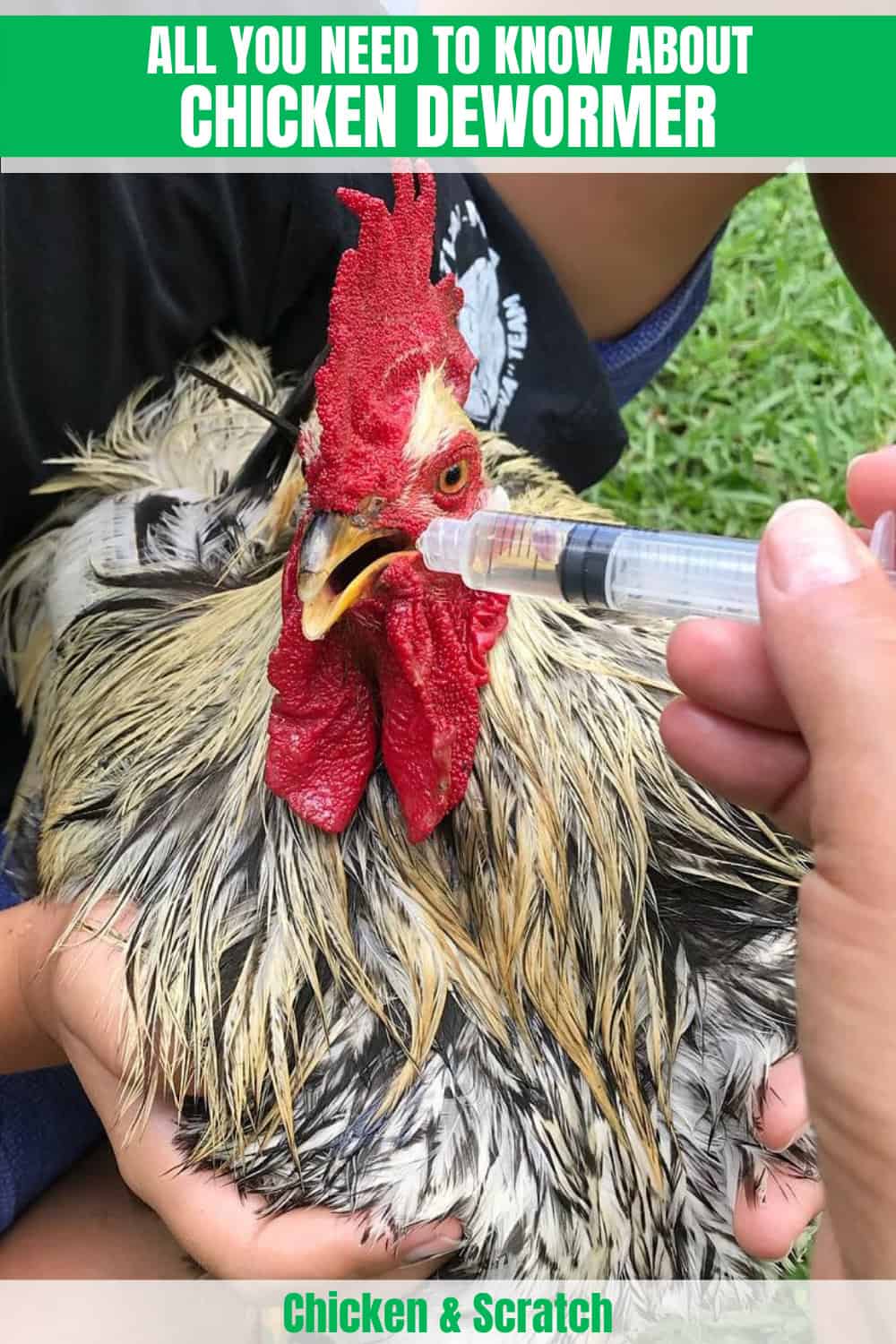







How can I control chicken drink control too much white cheat from my chicken
Do broiler chickens need deworming?
yes, chickens can get worms from the type of food they eat (either intensively or extensively) and also the environment too
Quite enlightened by this